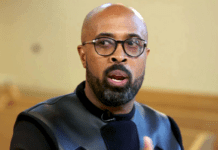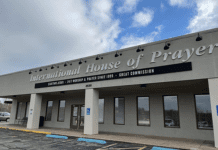“There’s going to be definitely an uptick in third-quarter meetings, faith-based meetings, and much heavier in the fourth quarter,” Schmidt predicted.
In the meantime, some summertime meetings are being scheduled across the country.
The Southern Baptist Convention, which canceled its annual meeting last year, has plans to reconvene June 15-16 in Nashville, Tennessee, but is monitoring advice about large gatherings from local health officials and the Centers for Disease Control and Prevention.
“The SBC Executive Committee is actively monitoring COVID-19 in our region,” said Jon Wilke, media relations director for the Nashville-based Executive Committee. “We also understand there are questions as to how COVID-19 may impact the upcoming SBC Annual Meeting.”
The African Methodist Episcopal Church is planning its General Conference for July 6-10 in Orlando, Florida, according to a February announcement.
“However,” wrote Bishop John F. White of the commission planning the event, “I want to assure the Connectional Church that the Commission continues to monitor conditions in the United States and abroad that may affect our gathering and will have in place plans to meet those contingencies.”
Meanwhile, the African Methodist Episcopal Zion Church has not yet made a decision on its General Conference that is currently postponed until July 28-Aug. 1 in Atlanta.
Other groups are planning a virtual meeting later in 2021 or postponing their meetings until 2022.
The National Council of Churches’ Christian Unity Gathering, which was held online in the fall of 2020, is scheduled online again for Oct. 11-12, said Cynthia Griffiths, director of communications and development. She noted that the 2020 registration topped 1,200, when in-person gatherings had previously totaled between 200 and 300.
“These figures show that online events have the potential to be accessible to and attended by more people,” she said. “After 2021, we may consider ‘hybrid’ events that are offered both online and in-person.”
Schmidt said hybrid meetings, which are still in development stages, may be a wave of the future for religion-related conferences.
“Into ’22 and beyond, you’re going to probably see a blend and a marriage of the hybrid and in-person model because you actually have the potential of having a far greater outreach numerically,” he said.











